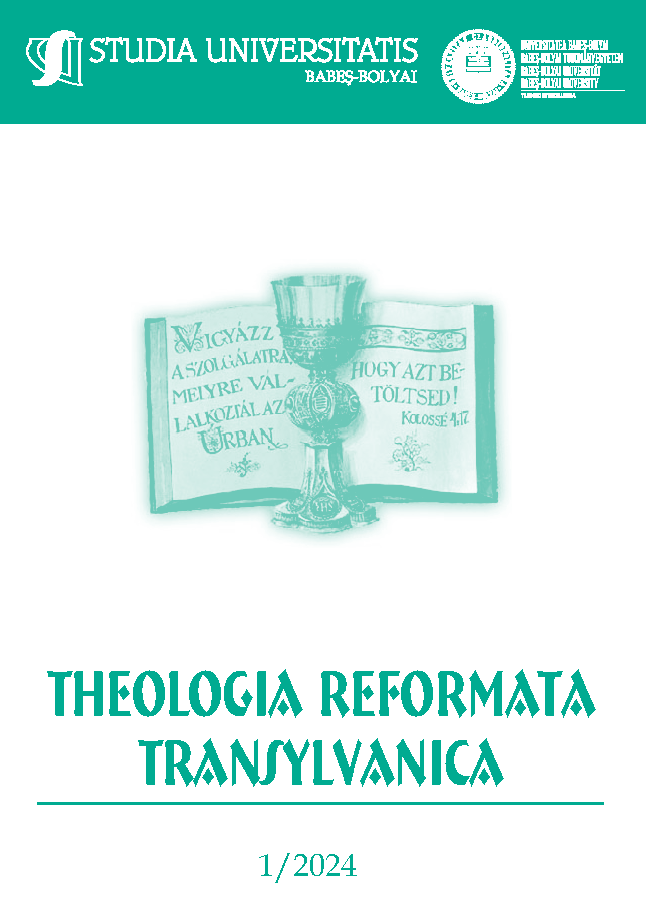„A dolgozat, amely épphogy csak meg nem írja önmagát” A szó szuggesztív vagy cselekvő lehetőségeinek pilot-vizsgálata
DOI:
https://doi.org/10.24193/subbtref.69.1.15Keywords:
suggestive communication, altered state of consciousness, performance anxiety, school performance, pop quizAbstract
“The Pop Quiz That Does Everything but Write Itself”
Pilot Examination of the Suggestive or Acting Potential of the Word
“Then God said, ‘Let there be light! And there was light.” These words are not only said, but they bring into being what is said. That God created man in his image and likeness is reflected in our speech. By their very nature, our words are creative: when they are uttered, they always create something. In psychological terms, words are the basis of our relationships, successes and failures, and our moods. They define and shape our social environment and govern our thoughts and actions. They influence our self-esteem, well-being, the development of our abilities, and performance and, last but not least, they can affect the functioning of our cells and bodily processes. Suggestion is the term used to describe any message, generally verbal, that has an involuntary effect on the receiver, who can transform words into action as a result. It is an essential element of communication that can occur in many social situations. In our pilot study, we used the tools of suggestive communication in instructions and questions related to a school essay and investigated their impact on performance.
References
BUDAVÁRI Ágota (2007): Sportpszichológia. Budapest, Medicina Kiadó.
COUÉ, Emil (2012): A gyógyítás legnagyobb titka. Dunaújváros, Egyensúlyért Bt.
CSÍKSZENTMIHÁLYI Mihály (2010): Flow – az áramlat. A tökéletes élmény pszichológiája. Budapest, Akadémiai Kiadó.
EVANS, Carlton – RICHARDSON, Philip H. (1988): Improved Recovery and Reduced Postoperative Stay after Therapeutic Suggestions during General Anaesthesia, In: Lancet. 2. 8609. 491–493. https://doi.org/10.1016/s0140-6736(88)90131-6.
EWIN, Dabney, M. (1992): The Use of Hypnosis in the Treatment of Burn Patients, In: Psychiatric Medicine. 10. 4. 79–87.
JACOBS, Donald T. (1991): Patient Communication for First Responders and EMS Personnel: The First Hour of Trauma. New Jersey, Prentice Hall.
METZIG, Werner – SCHUSTER, Martin (2003): Tanuljunk meg tanulni! A tanulási stratégiák hatékony alkalmazásának módszerei. Budapest, Medicina Kiadó.
PRATKANIS, Anthony – ARANSON, Elliot (1992): A rábeszélőgép. Budapest, AB OVO.
ROSENTHAL, Robert – JACOBSON, Lenore (1968): Pygmalion in the Classroom: Teacher Expectations and Pupils Intellectual Development. New York, Holt, Rinehart and Winston, Inc.
SARLÓS Engelbert OSB (1942): Szuggesztió és nevelés. Budapest, Sarlós Engelbert.
Semmelweis összegyűjtött munkái (1906): Budapest, A Magyar Orvosi Könyvkiadó Társulat Könyvtára, XCVI. KÖTET. 100. https://mek.oszk.hu/14200/14289/.
TRZASKOMA-BICSÉRDY Gabriella (2007): A sportági eredményesség néhány meghatározó tényezőjének vizsgálata birkózásban. Egyetemi doktori értekezés. Budapest, Semmelweis Egyetem Nevelés- és Sporttudományi Doktori Iskola.
http://phd.sote.hu/mwp/phd_live/vedes/export/bicserdygabriella.d.pdf.
VARGA Katalin (2005): Szuggesztív hatások az orvosi gyakorlatban, különös tekintettel a perioperatív időszakra, In: Varga Katalin (szerk.): Szuggesztív kommunikáció a szomatikus orvoslásban. Budapest, Továbbképző szakanyagok. 353–369.
(2011): A szuggesztív kommunikációban rejlő lehetőségek, In: Varga Katalin (szerk.): A szavakon túl: kommunikáció és szuggesztiók az orvosi gyakorlatban. Budapest, Medicina Kiadó. 22–35.
VARGA Katalin – DIÓSZEGHY Csaba (2001): Hűtésbefizetés, avagy a szuggesztiók szerepe a mindennapi orvosi gyakorlatban. Budapest, Pólya Kiadó.
Downloads
Published
How to Cite
Issue
Section
License
Copyright (c) 2024 Studia Universitatis Babeș-Bolyai Theologia Reformata Transylvanica

This work is licensed under a Creative Commons Attribution-NonCommercial-NoDerivatives 4.0 International License.



